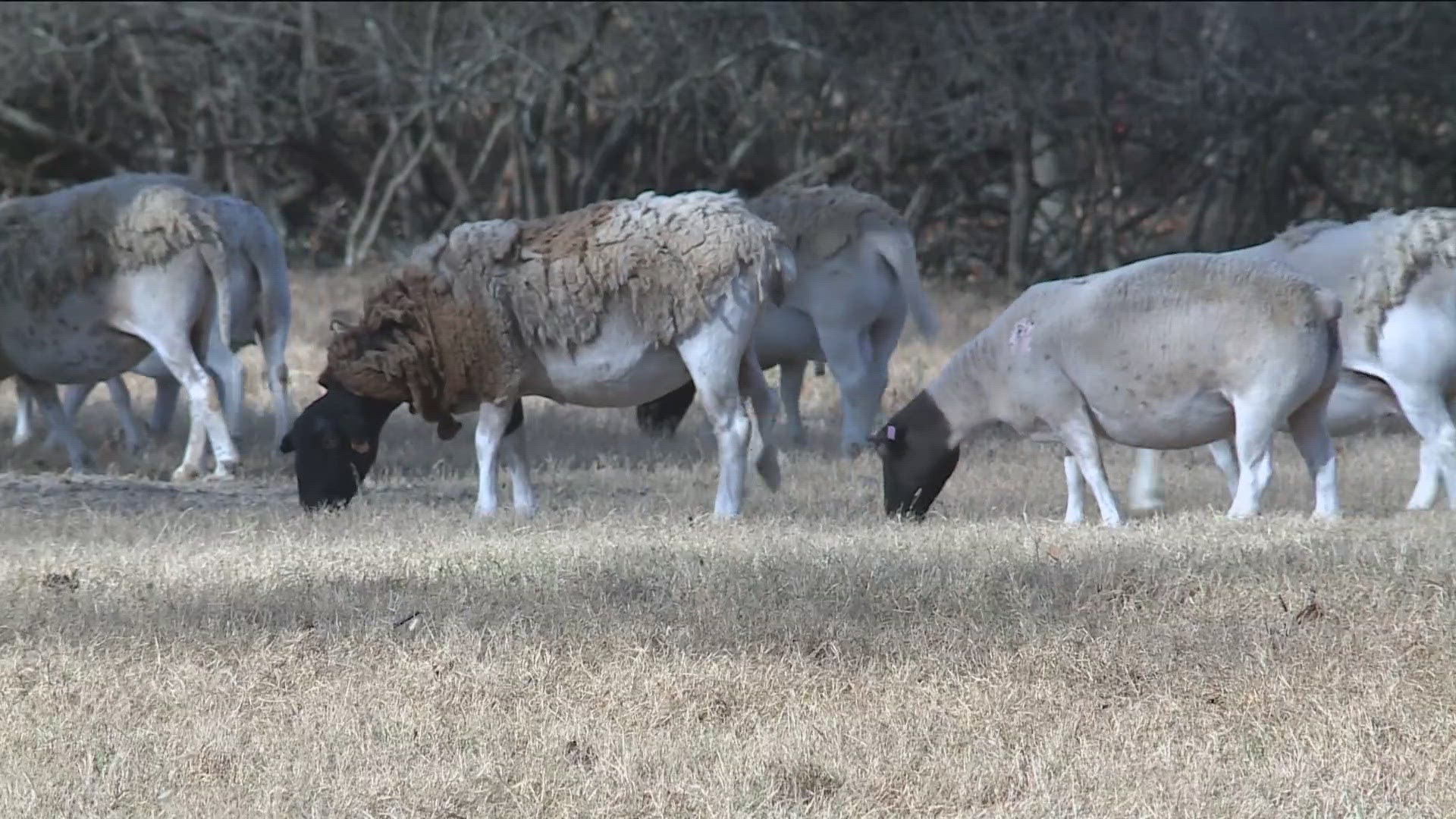BENTONVILLE, Ark. — Recent drought conditions in Northwest Arkansas and the River Valley have put a strain on various industries.
In Bentonville, Will and Waltina Hanna have owned and operated Hanna Family Ranch since 2013. Primarily, the family raises sheep and produces high-quality lamb meat that they sell to local restaurants.
They said the lack of rain has posed some challenges for their businesses in recent months.
"Droughts come and go, you know, they're every few years," Will said. "The reason this one is so different is because it’s longer than I had experienced in the past, and I have more at stake than I used to. I have livestock now."
In addition to drying ponds on their 35-acre land and dying trees that often produce shade for the sheep, Will said their pastures have dried up earlier than expected.
"Last year, they ate pasture until November, and that was wonderful," Will said. "This year in August, I'm haying them because the pastures are gone. So it increases our expenses.”
Will said they spend around $50 a day on bales of hay for their sheep. He said those are expenses they were not expecting to pay until needing it in the winter.
To save on costs, Will said they have begun selling off livestock and reducing inventory.
He said that for the time being, they are willing to eat up the cost it takes to pay for the extra feed, but if the drought continues, he said they may consider raising the prices of their lamb meat.
"At some point, if we have successive years of something like this, what do we do with 35 acres if it's not raising livestock on it?" Will said.
Cattle farmers are also impacted in a unique way by the drought.
James Mitchell, assistant professor at the University of Arkansas Department of Agricultural Economics, said that during a drought, cattle ranchers flock to sell their livestock.
"They're probably going to take their cattle to market earlier than they normally would," Mitchell said. "If you have everyone bringing their cattle to market at the same time, that tends to lower cattle prices."
He said doing so would mean that those cows are no longer on the farm to provide calves for the future.
Mitchell said those cows might have been able to provide more cash flow to the ranchers for years following.
With cattle prices currently being very high, Mitchell said a drought might offset the gains some ranchers might have been able to make.
"This drought is forcing some producers to liquidate their herds or shrink their herd sizes at a time when maybe we'd like to be holding those herd sizes constant with a plan to maybe expand them next year," Mitchell said. "So we're not able to capitalize on higher prices than maybe we normally would without this drought happening."
At Hanna Family Ranch, Will said they will continue checking the forecast for some rain.
"Every day, every day, every day ... praying for rain," Will said. "And then a lot of times when you get rain, then I'll complain about the mud."
Watch 5NEWS on YouTube.
Download the 5NEWS app on your smartphone:
Stream 5NEWS 24/7 on the 5+ app: How to watch the 5+ app on your streaming device
To report a typo or grammatical error, please email KFSMDigitalTeam@tegna.com and detail which story you're referring to.

